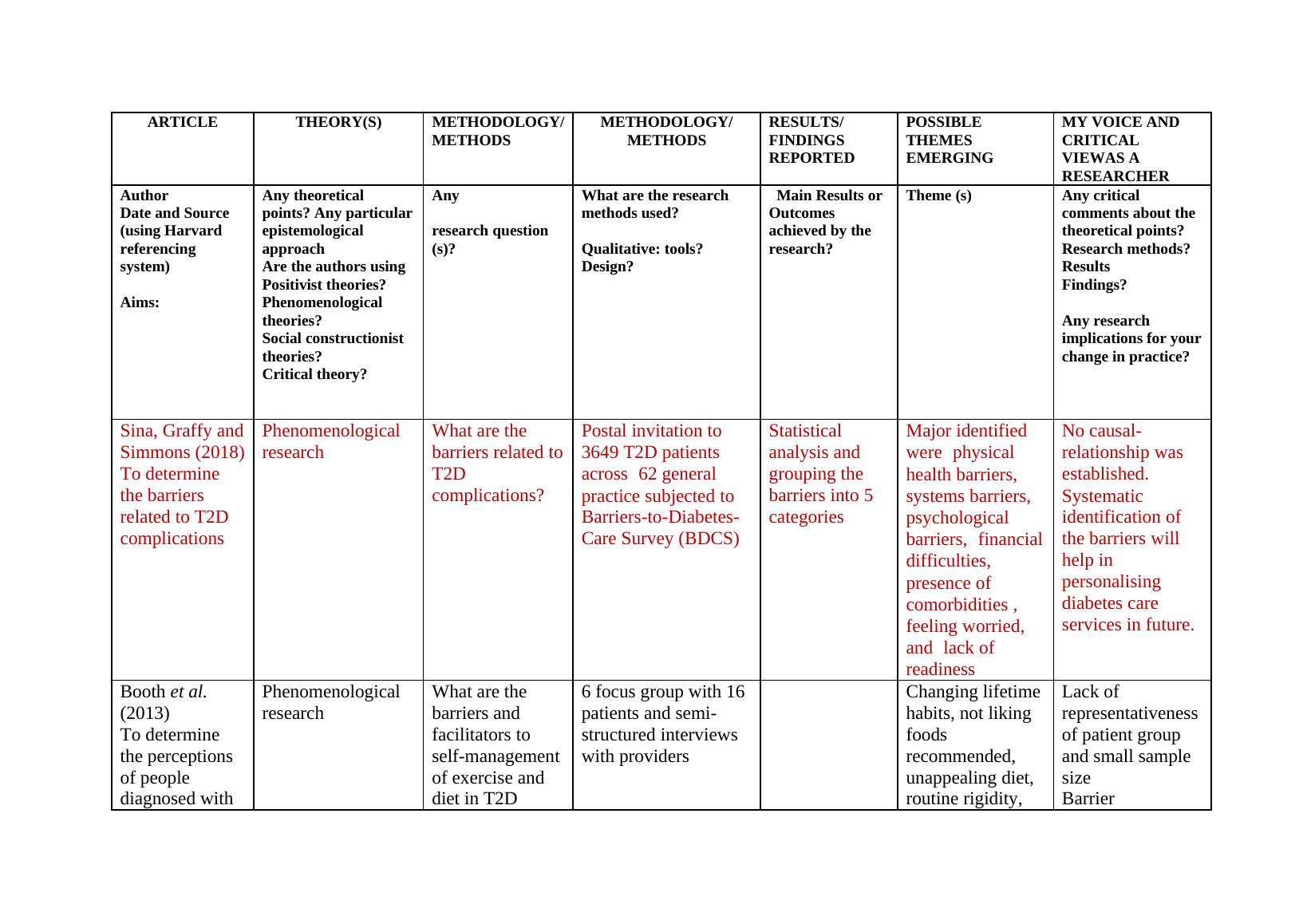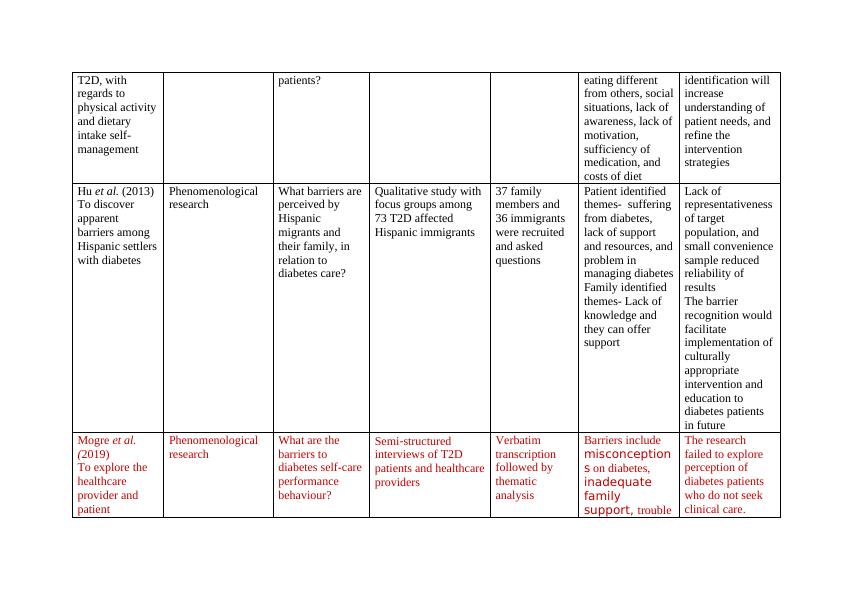Barriers to T2D Complications: Research Findings and Implications
Added on 2023-04-20
5 Pages983 Words380 Views
End of preview
Want to access all the pages? Upload your documents or become a member.
Barriers to Attaining Diabetes Care Goals: A Theoretical Exploration
|2
|545
|460
Barriers and Potential Solutions in Diabetic Care
|9
|2503
|30
Challenges Faced by People with Diabetes in Accessing Information and Medical Care
|33
|8804
|127
An Overview and Treatment of SCD Disease
|42
|11750
|15
Self-Monitoring of Blood Glucose
|12
|587
|18
The Impact of Early Teachers in Brain Development: Enhancing the Growth of Children from Lower Income Families in the Malay Community
|1
|561
|220


